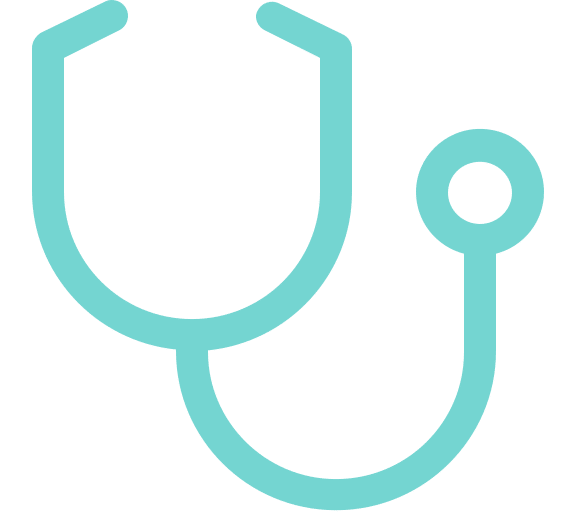Online Prescription
Genital Herpes Treatment
Ireland’s Award-Winning Online Doctor Service


from
€30
Webdoctor.ie
Customer Review
—Joanna, 17th July 2022
Episodic Genital Herpes Treatments
That We Can Provide
We issue prescriptions for generic name medicines to ensure maximum availability of treatments. Please check your dispensed prescription before leaving the pharmacy as no changes can be made after that point.
- Oral Antiviral Medications
- Anaesthetic Gel
How It Works
Requesting a prescription for symptomatic flares of Genital Herpes treatment couldn’t be easier with Webdoctor.ie! We despatch your prescription to an Irish pharmacy chosen by you.

Step 1
Online Questionnaire

Step 2
Medical Review

Step 3
Important Medical Information
Who is this service suitable for?
This service is suitable for your if:
- You are 17 years of age or older.
- You have been previously diagnosed with Genital Herpes by a healthcare professional.
- You require treatment for a current flare of Genital Herpes or in preparation for future significant flare.
- You have lesions (blisters) located on, or around your genitals only.
Who is this service unsuitable for?
This service is not suitable for you if:
- You are requesting this treatment for another person (that is a person other than the named person on this account).
- You are pregnant, suspect you could be pregnant, or are breastfeeding.
- This is the first time you have had Genital Herpes. In this situation, you should attend your local sexual health clinic or GP in person for assessment, diagnosis by swab, advice and follow-up.
- You need a prescription for suppression therapy (longer course of treatment to help prevent frequent flares)
- You are feeling unwell, eg. high temperature, fever, headache, malaise.
- You have severe kidney disease.
- You are immunocompromised (have a weakened immune system because of certain medical conditions, or medications you are taking)
- Not all the herpes lesions are located on or around the genitals.
If our service is not suitable to manage your current symptoms, we would advise that you arrange an appointment for assessment with your local GP or sexual health clinic.
What is Genital Herpes?
Genital Herpes is a common sexually transmitted infection (STI) that is caused by the herpes simplex virus (HSV).
Genital Herpes is very contagious and is typically spread via skin-to-skin contact, kissing, vaginal and anal sex (genital contact), oral sex (mouth to genital contact) and sharing sex toys.
What causes Genital Herpes?
There are 2 different types of HSV that cause Genital Herpes, HSV type 1 and HSV type 2. These viruses can also cause cold sore lesions. HSV type 1 is now the most common cause of Genital Herpes due to transmission from cold sores and oral sex. HSV type 2 is now less common but is more likely to be associated with recurrent infections.
If previously infected, you can be contagious even if you have no visible sores or blisters. The shedding skin will carry the virus and can infect another person.
What are the symptoms of Genital Herpes?
Symptoms and presentation will often vary from person to person. Most people do not have any signs or symptoms of Genital Herpes. Others will experience pain, itching and sores in or around the genital area ranging from mild to severe.
If you have symptoms associated with the primary infection, they are usually more severe than during subsequent episodes.
What is a primary Genital Herpes infection?
The first time you are infected with HSV is known as the primary infection. Often, there are no symptoms and many people do not know they have it. This is described as ‘Subclinical infection’.
If symptoms are present and it is a primary infection, you are more likely to feel generally unwell during this compared with any recurrent episodes. A primary infection can last up to four weeks if not treated and can be very debilitating.
Symptoms may include:
- Painful crops of blisters preceded by tingling or burning pain.
- Blisters are usually present on both sides of the body.
- Fever & muscle aches and pains.
- Tender groin bi-laterally due to swelling of lymph nodes in the groin area.
- Pain passing urine.
- Vaginal or urethral discharge.
What should I do if I think I have Genital Herpes for the first time? (Primary infection)
All patients with a first known episode (symptoms) of HSV infection should attend their local GP or sexual health / GUM clinic for in-person assessment, confirmation of diagnosis and management.
You should also have screening for other STIs at this time. A diagnostic swab for typing the virus will be taken at this time and does not need to be re-taken during any future flares.
Click here for a list of Irish sexual health / GUM clinics. You do not need a referral letter to attend these clinics.
It is not appropriate for the initial infection to be managed via this online service as a diagnostic swab is needed.
What are recurrent Genital Herpes infections?
After the primary infection, the herpes virus lies dormant (asleep) in the nerve cells of your skin and has the potential to reactivate at any time.
When the virus travels to the skin during reactivation, you are contagious; you may have painful skin blisters (symptomatic) or you may not have any blisters (asymptomatic). Symptoms and presentation will vary from person to person.
For most people, the outbreaks become less frequent and severe over time, as your immune system dampens down its response to the virus, but it can last for several years.
In some cases, treatment is necessary to manage recurrent infections as these may be very frequent, extremely painful, or in places that can cause significant complications e.g. at the opening of the urethra, making it difficult to pass urine. On recurrences, the blisters or discomfort occur in exactly the same genital area.
Where can the herpes blisters appear?
Men and women can develop sores on the:
- Buttocks and thighs
- Anus
- Mouth (cold sores)
- Urethra (the tube that allows urine to drain from the bladder to the outside)
Women can also develop sores in or on the:
- Vaginal area
- External genitalia
- Cervix
Men can also develop sores in or on the:
- Penis
- Scrotum
What Genital Herpes treatments can we provide?
Webdoctor.ie can arrange a prescription for antiviral tablets and an anaesthetic (numbing) gel.
Our service is limited to those who have previously been diagnosed with genital herpes by a healthcare professional, to treat a current outbreak, or in preparation for a future outbreak. (Subject to clinical suitability)
We are not able to offer prescriptions for other treatments via this service.
What are antiviral tablets?
Antiviral medications can be used to help manage HSV infections.
They do not cure Genital Herpes but can reduce the severity and duration of the outbreak by preventing the virus from multiplying. This can also help to reduce the spread of the virus.
You should take this medication as soon as possible after the start of the Genital Herpes episode.
What are the potential side effects of the antiviral tablets used to treat genital herpes?
- Nausea/ vomiting, diarrhoea or stomach aches
- Headache
- Skin rash, itching or feeling hot
- Dizziness
- Fatigue
- Photosensitivity (more sensitive to sunlight)
These symptoms are usually mild and settle quickly. If you are concerned about any of these symptoms, or you develop other symptoms which you feel may be related to this medication, please stop the medication and speak with your pharmacist or doctor for advice.
How do you take these medications?
Take this medication as soon as possible after the start of the Genital Herpes episode. Please note, your prescription will be for 5 days treatment. Complete the first 3 full days of the medication; if your symptoms have settled then you can stop, if not take the additional medication to complete a 5 day course of treatment.
This information will be on the label that is affixed to the medication by the pharmacist.
Please note these instructions are different to those on the patient information leaflet that comes with these medications.
What is anaesthetic gel?
How do you use the anaesthetic gel?
Apply a small amount of this gel (1-2mls) the affected area as needed. You should not use more than one third of a syringe in 24 hours.
Ideally apply using a cotton bud or wearing gloves to avoid numbing your fingers and to avoid direct contact with the lesions.
It is for external use only.
Make sure to wash your hands well after applying this gel.
What are the side effects of anaesthetic gels?
Side effects are uncommon as it is applied in small amounts to small areas of skin.
Reported side effects include:
- Localised irritation: redness, burning or swelling of the skin where the gel has been applied
- Rarely systemic side effects can occur (usually if very frequent application to a large area of skin): dizziness, palpitations, headache, drowsiness.
If you experience any of the above side effects, stop using the gel or reduce how much and how often you are applying it.
- Very occasional increased blistering of skin has been observed when using this treatment. If this happens, stop using it immediately, wash off the area and seek medical assessment.
Can I prevent a flare of Genital Herpes?
Some people find that certain triggers or situations will cause an outbreak of Genital Herpes.
- Feeling unwell, eg. with a viral infection or fever
- Stress
- Fatigue
- Changes to the immune system
- Hormonal changes, like at the start of your period
- Excess alcohol consumption
If you have identified a trigger, you should try and avoid this, where possible.
How do you stop the spread of Genital Herpes?
Genital herpes blisters are contagious from the moment of the first tingle until they have completely healed. To reduce the risk of passing the infection on to others:
- Try not to pick or touch sores
- Avoid sexual contact if you or your partner have an active Genital Herpes infection, until all blisters and sores have healed
- Avoid intimate contact if you or your partner have active cold sore lesions
- Consider using a condom during every sexual encounter, especially if you are a known carrier of this infection.
- You can be asymptomatic and carry the herpes virus for a very long time and pass it on without knowing.
- Condoms do not provide complete protection, as they only cover the skin of the penis, but they do reduce the risk of transmission. However, in foreplay, the virus can be transmitted with skin to skin contact.
- If you carry this virus, you should be open about this with any partner before sex.
- Try to avoid triggers, such as those listed above. The best way to avoid spreading cold sores is to avoid getting them.
- If you get a warning sign, then act quickly: follow the advice above and consider antiviral medication treatment.
If you have any questions about this, you can speak with one of our experienced GPs by booking a video consultation today.
When should I see a doctor in person?
There are occasions when it is necessary to see a doctor in person (your local GP or sexual health clinic):
- If you are pregnant (it is important to discuss this with your antenatal team)
- If you are feeling generally unwell (e.g fever, headache, malaise)
- If you have a weakened immune system
- If your lesions have been present for more than 10 days
- If you are concerned that your lesions are getting worse, with or without treatment
A more detailed clinical assessment is essential in these cases.
Why Choose Webdoctor.ie?

Expertise
All of our doctors are registered with the Irish Medical Council and provide convenient and confidential healthcare to our patients.
Confidential
Caring
Convenience
Value
Irish
Webdoctor.ie is an Irish-based healthcare provider that has carried out over 130,000 patient consultations.
Webdoctor.ie In The Media
As Ireland's leading online doctor service, Webdoctor.ie is regularly featured in the national media.
Want to know more about us?
Visit our media page
